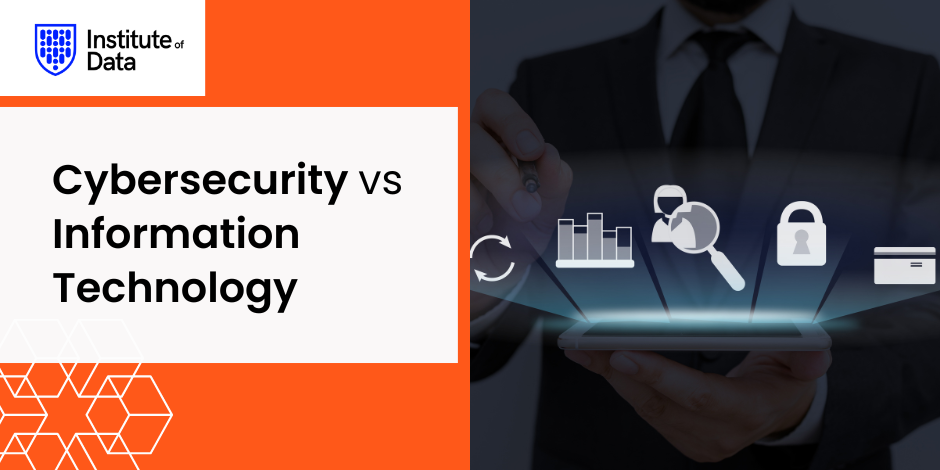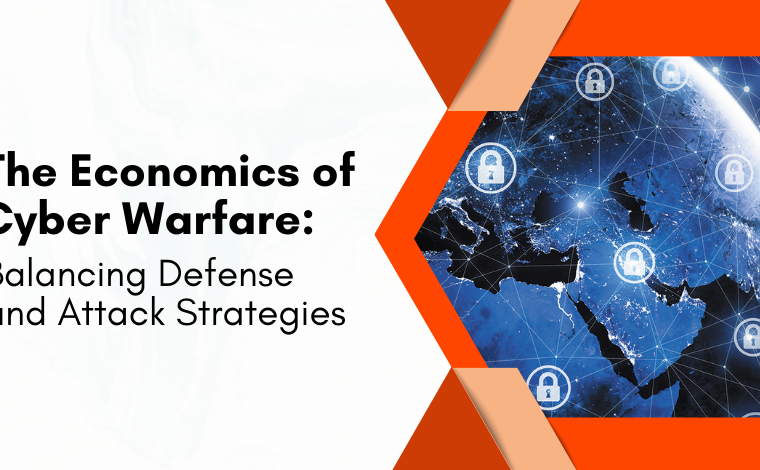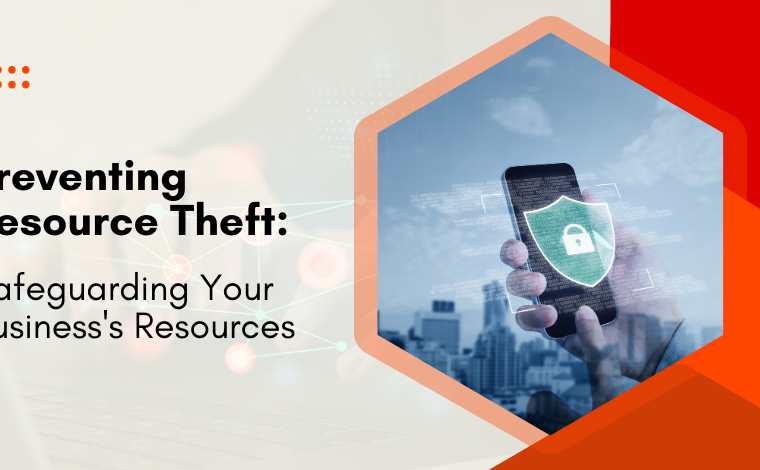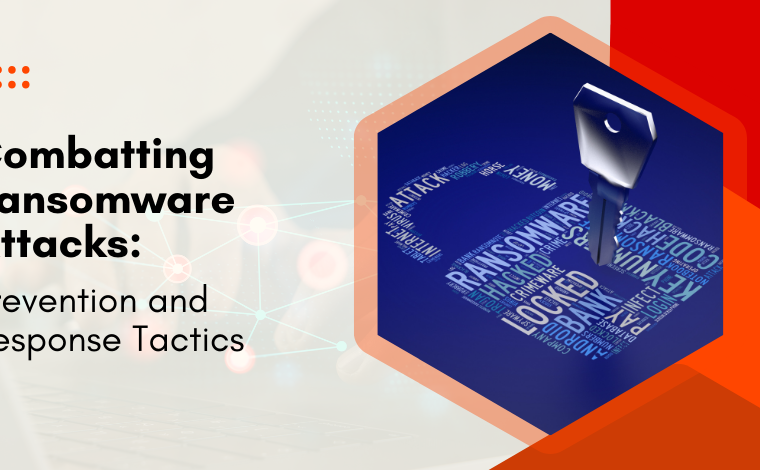Cybersecurity or Information Technology: What’s the Difference?

Stay Informed With Our Weekly Newsletter
Receive crucial updates on the ever-evolving landscape of technology and innovation.
In the digital age, where technology is at the forefront of our lives, it is essential to understand the differences between cybersecurity or information technology.
These two terms are often used interchangeably, but they encompass distinct areas of expertise.
This article aims to define the terms, explore their roles in the digital world, compare their similarities and differences, and provide guidance on choosing a career path in either cybersecurity or information technology.
Defining the terms: cybersecurity and information technology

Before exploring whether cybersecurity or information technology is the path for you, it is crucial to establish a clear understanding of each term.
Cybersecurity has roots in the early days of computing, when the concept of protecting data and systems from malicious attacks first emerged.
Over the years, with the rapid advancement of technology, cybersecurity has become a critical aspect of digital operations for individuals, businesses, and governments alike.
What is cybersecurity?
Cybersecurity is the practice of protecting computers, servers, mobile devices, electronic systems, networks, and data from digital threats.
It involves implementing measures to prevent unauthorized access, data breaches, and cyber-attacks.
Cybersecurity professionals play a critical role in safeguarding sensitive information and ensuring the integrity of digital systems.
Moreover, the field of cybersecurity is constantly evolving to keep pace with the ever-changing landscape of cyber threats.
From ransomware attacks to phishing scams, cybersecurity experts are at the forefront of developing innovative strategies to counter these risks and protect valuable data.
What is Information Technology?
Information Technology (IT) refers to the application of computer systems, networks, software, and electronic infrastructure to store, process, transmit, and retrieve data.
It encompasses a wide range of functions, including hardware and software management, network administration, database management, and technical support.
IT professionals provide essential technical expertise to enable businesses to operate efficiently in the digital realm.
Furthermore, the field of Information Technology has witnessed remarkable growth and transformation over the years.
From the introduction of mainframe computers to the era of cloud computing and artificial intelligence, IT has revolutionized the way organizations manage and utilize technology.
IT professionals are instrumental in driving innovation and digital transformation across various industries, shaping the future of technology-driven solutions.
The role of cybersecurity in the digital world

The rapid advancement of technology has transformed the way we live, work, and communicate.
With this digital evolution comes an increased risk of cyber-attacks and data breaches.
The role of cybersecurity becomes incredibly significant in ensuring the protection and security of our digital assets.
The importance of cybersecurity
In today’s interconnected world, knowing more about cybersecurity or information technology is crucial for individuals, businesses, and governments.
A single cyber-attack can lead to devastating consequences, including financial loss, reputational damage, and compromised personal information.
Cybersecurity professionals are responsible for implementing proactive measures, identifying vulnerabilities, and responding effectively to protect against cyber threats.
Key responsibilities of cybersecurity professionals
Cybersecurity professionals perform a variety of tasks to safeguard digital systems and data.
Their key responsibilities include:
- Developing and implementing security protocols and policies
- Conducting risk assessments and vulnerability testing
- Monitoring and detecting potential security breaches
- Responding to and recovering from cyber-attacks
- Educating users on best practices for digital security
The role of information technology in businesses
Information Technology is the backbone of modern businesses, enabling efficient operations, effective communication, and streamlined processes.
IT professionals play a critical role in maintaining and optimizing digital infrastructure.
The significance of information technology
Both cybersecurity or information technology have become indispensable in today’s business landscape.
Information technology facilitates seamless data management, enhances productivity, enables remote workforce capabilities, and drives innovation.
Businesses rely on IT professionals to ensure the smooth functioning of computer systems, networks, software, and other technological assets.
Primary duties of Information Technology professionals
Information Technology professionals perform a wide range of duties to support organisations’ technology infrastructure.
Their primary responsibilities include:
- Managing hardware and software installations and upgrades
- Maintaining and troubleshooting computer systems and networks
- Providing technical support to users
- Managing databases and data storage systems
- Implementing and facilitating technology-driven initiatives
Comparing cybersecurity and information technology
While cybersecurity and information technology are closely related, they differ in several key aspects.
Understanding these differences is crucial for individuals considering a career in either field.
Similarities between cybersecurity and information technology
Cybersecurity and information technology intersect in various areas, both essential for the successful functioning of digital systems.
Some commonalities include:
- Both involve working with computers, networks, and digital infrastructure
- Both require a deep understanding of technology and its applications
- Both aim to protect data and ensure the confidentiality, integrity, and availability of digital assets
Differences between cybersecurity and information technology
Despite their similarities, cybersecurity and information technology diverge in their primary focus and scope of work:
- Cybersecurity primarily focuses on protecting digital assets from cyber threats and attacks, while information technology encompasses broader responsibilities, such as infrastructure management and technical support
- Cybersecurity professionals need specialized knowledge in areas such as cryptography, ethical hacking, and network security, whereas information technology professionals require expertise in areas such as systems administration, software development, and database management
- Cybersecurity professionals often work in reactive and proactive security measures, whereas information technology professionals are immersed in day-to-day operations, troubleshooting, and technological advancements
Choosing between a career in cybersecurity or information technology

Deciding between a career in cybersecurity or information technology depends on individual aptitude, interests, and career goals.
Both cybersecurity or information technology offer exciting opportunities and high demand for skilled professionals.
Skills required for a career in cybersecurity
To excel in cybersecurity, individuals should possess skills in:
- Understanding of security protocols and frameworks
- Proficiency in programming languages
- Knowledge of network and system vulnerabilities
- Analytical and problem-solving abilities
- Ability to think like a hacker and anticipate potential cyber threats
Skills required for a career in information technology
A successful career in information technology requires proficiency in:
- System administration and network management
- Programming and software development
- Database management and data analysis
- Technical troubleshooting and problem-solving
- Knowledge of emerging technologies and trends
Conclusion
Choosing cybersecurity or information technology is — a distinct yet interrelated discipline.
While both contribute to the protection and functionality of digital systems, they have different focuses and areas of expertise.
Individuals interested in pursuing a career in these fields should carefully consider their skills, interests, and long-term career goals.
Whether choosing a path in cybersecurity or information technology, one thing remains certain: both fields are essential in today’s digitally dependent world.
To further consider whether cybersecurity or information technology is the career path for you, we invite you to explore the Institute of Data’s specialized Cybersecurity program.
Alternatively, if you’re interested in learning more about the program and how it can benefit your future, book a free career consultation with a member of our team today.




